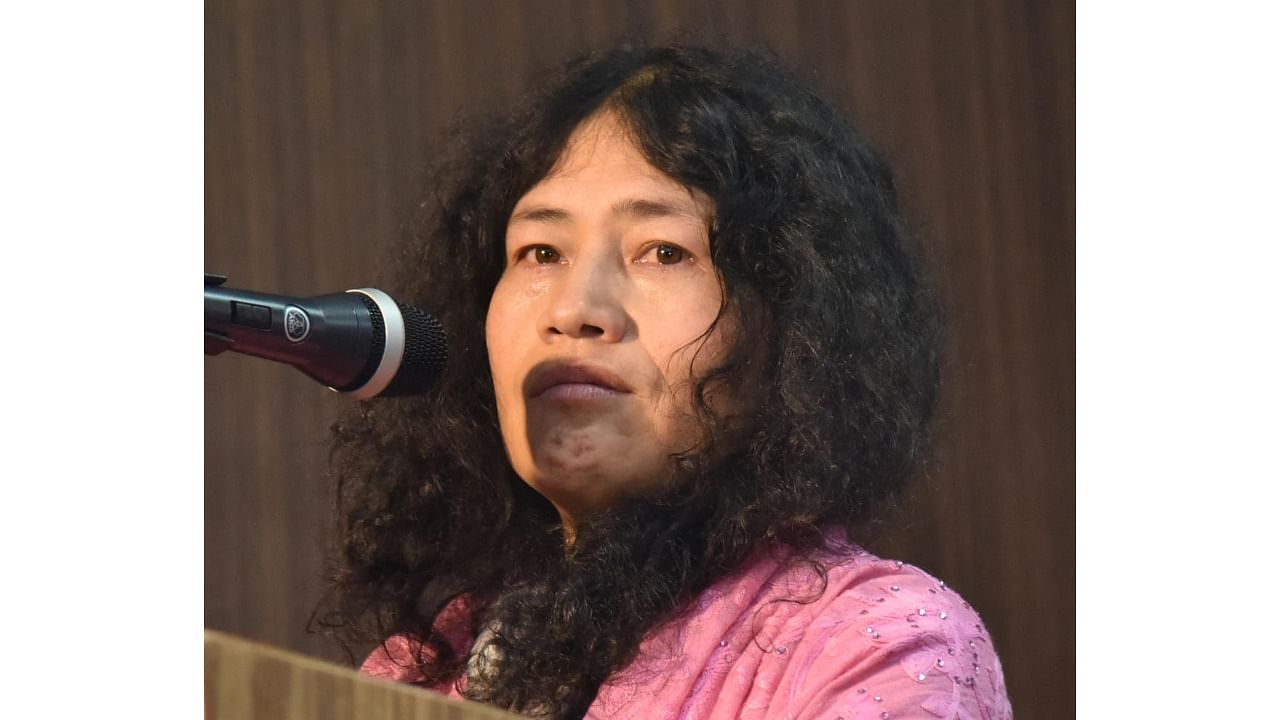
Rights activist Irom Sharmila, who was on a 16-year-long hunger strike demanding repeal of AFSPA, welcomed the Centre’s decision to reduce areas under the Act’s purview in Assam, Nagaland and Manipur but maintained that the "draconian, colonial law" should be rolled back completely.
Union Home Minister Amit Shah on Thursday announced a reduction in the number of “disturbed areas” in the three northeastern states where the Armed Forces (Special Powers) Act, 1958 continues to be imposed along with Jammu & Kashmir.
Also Read — AFSPA now applicable fully only in 31 districts, partially in 12 districts of 4 Northeast states
Sharmila, hailed as the ‘Iron Lady of Manipur’, termed AFSPA an “oppressive law” and said that it has never been a solution to tackling insurgency. "I welcome the Centre's decision to reduce the number of areas under the AFSPA’s purview. It is a positive step in the right direction. But the law should be repealed as it is not a solution,” she told PTI in a telephonic interview.
"India is a democratic country. For how long should we carry forward this colonial law? Why should people suffer because of it? In the name of fighting insurgency, crores of rupees are wasted which could have been utilised for the overall development of Northeast. AFSPA acts as a roadblock for progress,” Sharmila, who ended her marathon hunger strike in 2016, said.
The Centre’s decision came three months after it constituted a high-level committee to examine the possibility of lifting AFSPA from Nagaland, where 14 civilians were gunned down by security forces in a case of “mistaken identity” in December last year, triggering massive outrage. “The law and order situation in Manipur is not so bad that AFSPA has to remain imposed. Only bureaucrats and politicians derive benefits from its imposition. It creates misunderstanding among unemployed youths. The common people are the ones who suffer,” Sharmila said.
AFSPA has been in force in the three northeastern states for decades to tackle insurgency. It gives the security forces power to apprehend anyone on the basis of suspicion without a warrant, besides providing troops immunity from arrest or prosecution.
Human rights activists have alleged that the law has been often misused to arrest, raid houses or even shoot people. "You can't win over people by force. The government should try to win the hearts of the people of Northeast. Once there is real connection between the people and those in power, things will improve,” she said.
Noting that people from the Northeast face discrimination in other parts of the country, Sharmila, who unsuccessfully contested the 2017 Manipur assembly polls, said the repeal of AFSPA will also reduce the distance between people of the region and “mainland India”.
Sharmila had started her hunger strike against AFSPA after 10 civilians were allegedly gunned down by security forces at a bus stop in Malom near Imphal in 2000. She waged her peaceful resistance for 16 years before ending it in 2016. The 50-year-old rights activist got married in 2017 and is now settled in south India with her family.
Watch the latest DH Videos here: